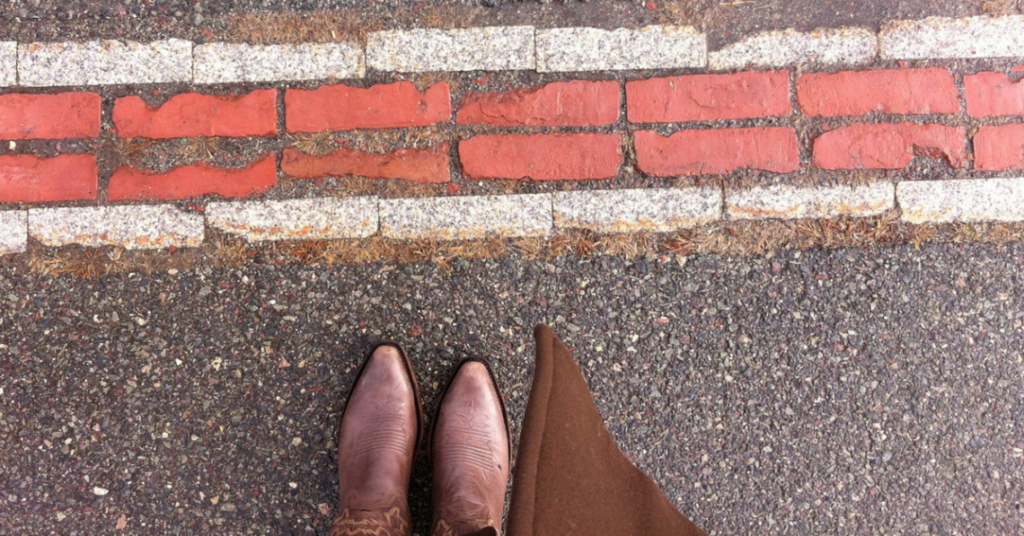Understanding the Difference between Settling and Ungrateful
5 min read
Understanding the Difference between Settling and Ungrateful
Settling and gratitude might seem similar, but they stem from very different mindsets. Settling often arises from a place of resignation. It’s when you accept less than what you deserve or desire, convincing yourself that it’s enough. This mindset can lead to stagnation and dissatisfaction.
On the other hand, gratitude is an active appreciation for what you have right now. It involves recognizing your blessings without diminishing your aspirations for more. When you’re grateful, you acknowledge life’s gifts while still pursuing growth.
Understanding this difference is crucial. Settling can leave you feeling trapped in mediocrity, whereas gratitude empowers you to embrace both contentment and ambition simultaneously. By appreciating your present circumstances while striving for improvement, you’re not just surviving; you’re thriving in life’s journey.
The Dangers of Settling
Settling often seems like a safe choice. It offers immediate comfort and the illusion of stability. However, this mindset can trap you in a cycle of dissatisfaction.
When you settle, you may sacrifice your aspirations and desires. Dreams fade into the background while mediocrity takes center stage. Over time, this leads to resentment—not just toward external circumstances but also towards yourself.
Additionally, settling can stunt personal growth. Without challenges or ambitions pushing you forward, life becomes stagnant. This lack of progress breeds frustration and discontent.
Relationships are no exception. Settling for less-than-fulfilling connections can erode emotional health over time. You might find yourself longing for deeper bonds while feeling trapped in superficial interactions.
Choosing to settle limits your potential and keeps you from experiencing true joy and fulfillment in life’s journey.
The Power of Gratitude
Gratitude has a remarkable ability to transform our perspective. When we focus on what we appreciate, it shifts our mindset from scarcity to abundance. This simple shift can create profound changes in how we experience life.
Studies show that practicing gratitude can improve mental health. It reduces symptoms of depression and anxiety while enhancing overall well-being. A grateful heart tends to foster resilience, allowing us to bounce back from life’s challenges more effectively.
Moreover, expressing gratitude strengthens relationships. When we acknowledge the kindness of others, it builds connection and fosters compassion. Whether through a heartfelt note or a simple thank you, these gestures deepen bonds.
In the chaos of daily life, taking moments for gratitude brings clarity and peace. It serves as a reminder that even amidst difficulties, there are always silver linings waiting to be discovered.
Finding Balance: How to Cultivate a Grateful Mindset without Settling
Cultivating a grateful mindset starts with recognizing what you truly value. Take time to reflect on your experiences, relationships, and achievements. This awareness can shift your focus from discontent to appreciation.
Practice mindfulness daily. Engage in simple activities such as journaling or meditating. These moments create space for gratitude without feeling like you’re settling for less.
Surround yourself with positive influences. Engaging with those who inspire you can elevate your perspective and reinforce the importance of growth alongside contentment.
Set clear goals that challenge you while remaining grounded in gratitude for where you currently stand. Embrace small wins along the way; they remind you of progress made amidst aspirations.
Remember that cultivating gratitude is an ongoing journey. It’s about finding joy in daily life while still striving for more without losing sight of what truly matters to you.
Practical Tips for Practicing Gratitude in Everyday Life
Start small. Each morning, jot down three things you appreciate. They can be as simple as a warm cup of coffee or the sound of birds chirping outside.
Make it a habit to share gratitude with others. A quick message thanking someone for their support can brighten their day and reinforce your sense of community.
Create visual reminders around your space—quotes, photos, or even sticky notes that capture moments of joy. These serve as prompts to pause and reflect on what matters most.
Practice mindfulness during daily routines. While washing dishes or commuting, take a moment to notice and appreciate your surroundings: the warmth of water or the rhythm of traffic.
End each day by reflecting on positive experiences before bed. This not only fosters happiness but also shifts focus from stressors to blessings in life.
Conclusion: Embracing Contentment and Growth Simultaneously
Finding balance in our lives is essential. Navigating the fine line between settling and expressing gratitude can be challenging. However, understanding this distinction empowers us to embrace both contentment and growth.
Contentment allows us to appreciate where we are right now. It encourages a sense of peace amidst chaos and uncertainty. Yet, growth pushes us to strive for better experiences, relationships, and opportunities.
By practicing gratitude intentionally without resigning ourselves to mediocrity, we open ourselves up to a richer life experience. This dual approach helps cultivate resilience while maintaining a positive outlook.
Recognizing that it’s okay to want more from life does not negate our ability or willingness to appreciate what we have. Instead, it creates space for improvement while honoring past achievements.
Life is an ongoing journey of learning and evolving. Balancing these two aspects—contentment with present realities and ambition for future aspirations—leads us toward fulfillment rather than discontent.
Let’s cherish the moments of joy while remaining open-hearted towards change. Embracing both elements invites abundance into our lives without feeling ungrateful or stagnant along the way.
Settling vs. Gratitude: Finding Balance in a World of Discontent
Introduction: The Paradox of Settling and Gratitude
We live in a world that often pushes us to strive for more, yet we frequently find ourselves grappling with feelings of inadequacy. The tension between settling and expressing gratitude can leave us feeling lost. Are we simply accepting less than what we deserve? Or are we practicing appreciation for what life has given us?
In this paradox, many wonder whether they’re settling or ungrateful. It’s a fine line to walk—a balancing act that requires self-awareness and perspective. As society feeds our desire for constant improvement, it’s easy to fall into the trap of discontentment while overlooking the beauty in our current situations.
Let’s dive deeper into these concepts and discover how cultivating gratitude can coexist with striving for personal growth. Understanding the nuances of settling versus being grateful may just unlock a path toward genuine fulfillment.



